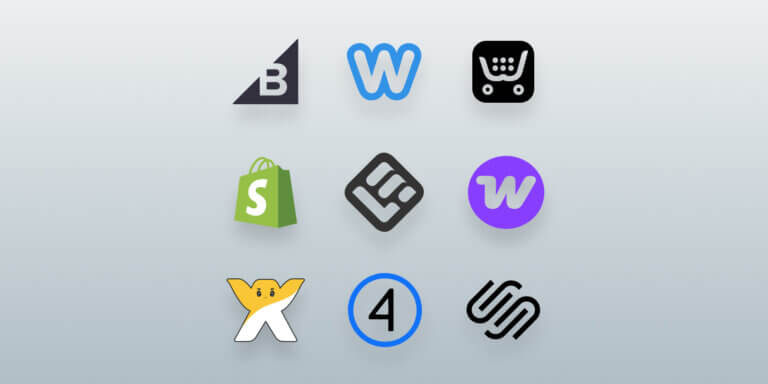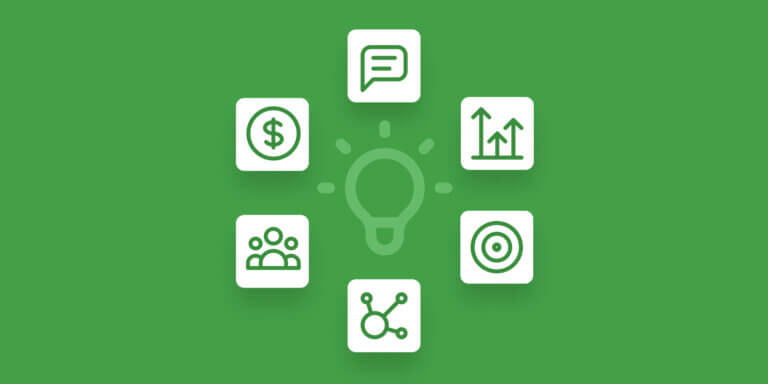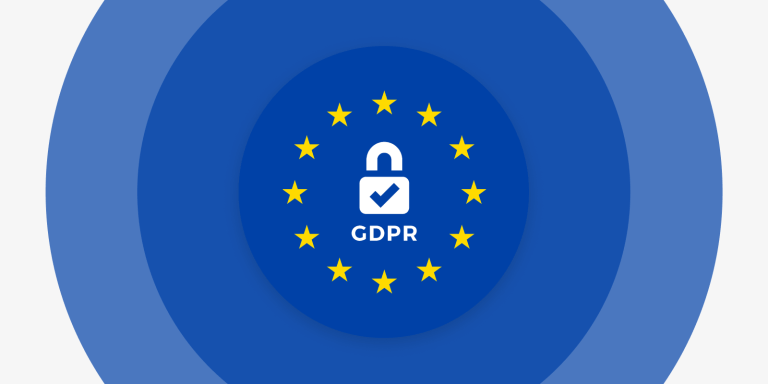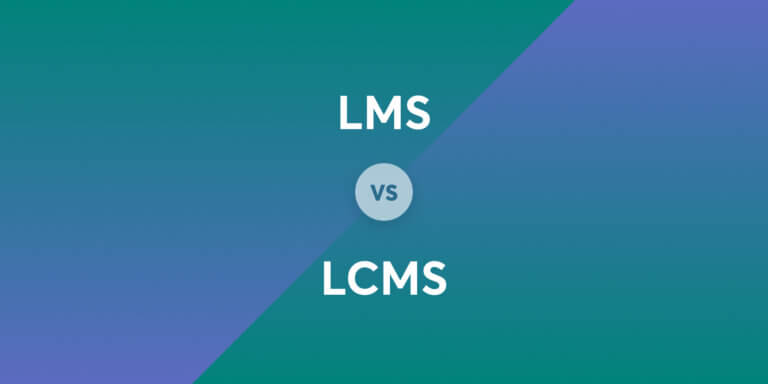Table of Contents
I started my first “business” when I was eight, selling dog accessories. It’s now crazy to think about it, but I had it all figured out. I got the brand, the handmade packaging, and even a website. But ecommerce platforms back then didn’t come with everything I needed to actually sell much.
Today, the right ecommerce platform can reflect your ambitions and help you grow your brand. Whether your small business sells physical goods, services, or digital products, the best ecommerce platform for small businesses should allow you to build, scale, and customize every part of your shop. Plus, you also have to account for the buying experience shoppers will have.
Within the following guide, you’ll see how the best platforms (like LearnWorlds and Shopify) can support you in turning your small business into a potentially global success.
What are ecommerce platforms for small businesses?
Ecommerce platforms for small businesses are solutions that let you create and manage online stores within a one-stop shop tool where you can do everything from building your online storefront to getting paid, running marketing campaigns, and managing inventory levels.
Types of small business ecommerce platforms
Let’s start with the most common types of small business ecommerce platforms you’ll want to consider.
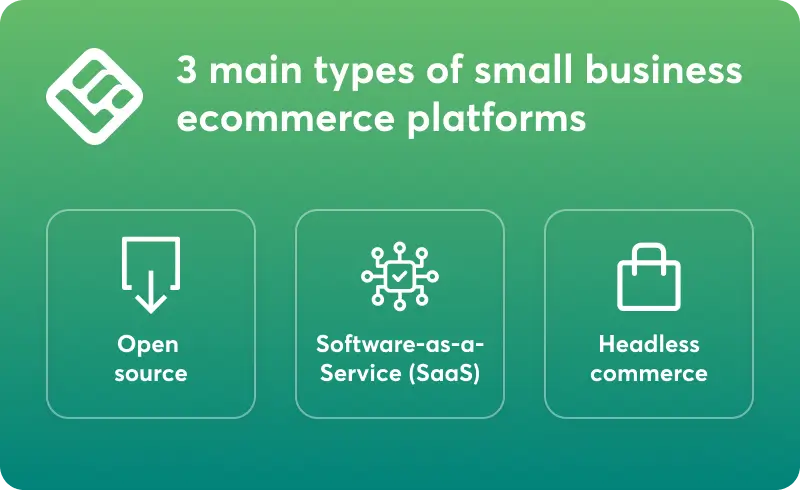
Open source
Open source ecommerce platforms give you the underlying code you need for free so you can install and change your online store as you wish. Examples of common open source options include WooCommerce and Magento Open Source.
With open-source software, you can do anything, including creating custom features, integrations, or designs. The only problem is you have to host it all yourself, ensure site-wide security, handle updates, and maintain it over time. This means they’re best suited to those who have technical experience (or with a developer team).
Software-as-a-Service (SaaS)
SaaS ecommerce platforms are managed by third parties, so you won’t have to worry about the technical aspects. Examples include LearnWorlds, Shopify, Wix, and BigCommerce (I’ll develop upon these later in this article).
You simply pay for their service on a monthly or annual basis and get access to an extensive (and continuously updated) list of features.
Headless commerce
Headless commerce tools tend to be more complicated and are therefore not a popular choice yet for new business owners. They do allow you to create custom websites or apps for customers, but pre-existing functionality and integration options are limited. It does rest as an option to consider in time, though, as almost 73% of businesses currently use headless website architecture.
How to choose the best ecommerce software for a small business
Next are the primary factors to influence your decision and individualized recommendations for each option to get you in the best shape for your business best ecommerce LMS should come with.
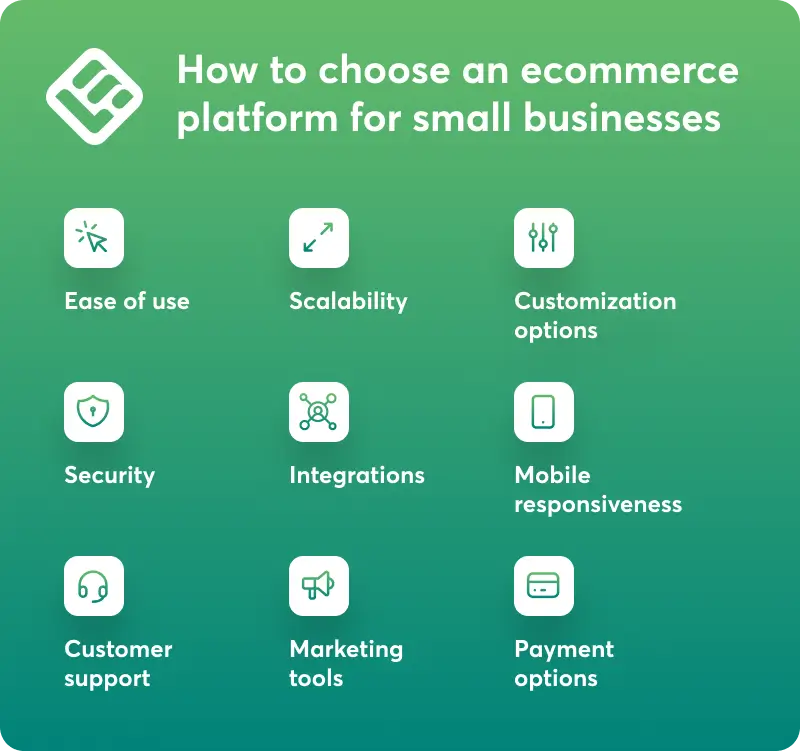
Ease of use
Ideally, you’ll find a small business ecommerce platform that’s quick and easy to set up. Think intuitive dashboards, a user-friendly interface (UI/UX), drag-and-drop builders, and easy navigation. Look for something with a shallow learning curve so that anyone on your team can quickly jump in and use the platform.
Scalability
Don’t let your tool limit your ambitions. Selling only a few items? Or maybe thousands? Doesn’t matter. Make sure any platform you pick will accommodate extra traffic, more products, and changing business models.
Customization options
Every small business is different, so you need an ecommerce website that reflects your brand and customer user experience. Great platforms also provide you with customizable layouts, themes, and plugins/options for advanced features. For those selling online courses, ecommerce LMS tools like LearnWorlds go one step further and allow you to make changes at a much more granular level.
Security
43% of all cyberattacks target small businesses. Always choose an ecommerce platform with SSL certificates, PCI-compliant payment gateways, and any extra security measures.
Integrations
The best ecommerce software for small business will let you do it all by connecting with third-party tools you might already be using for use cases like email marketing, accounting, analytics, and even shipping. Have a look at our full list of LearnWorlds integrations for some ideas.
Mobile responsiveness
Your ecommerce store needs to work flawlessly from any device with mobile-optimized templates, responsive designs, and built-in mobile-shopping features so customers can buy anytime, anywhere.
Customer support
Extraordinary customer service stands as a core differentiator. Accordingly, you’ll want an ecommerce platform that supports flexible and responsive live chat, email, and similar options.
Marketing tools
You also must get built-in marketing features to boost your growth. Must-haves I recommend for your marketing tools are discount codes, automated email campaigns, and social sharing as starters.
Payment options
The more ways people can pay you, the more they will. That ideally includes PayPal, Stripe, Apple Pay, diverse bank cards, and even options for taking recurring payments or subscriptions.
💡Read also: How to start a profitable online business for online courses from scratch
Ecommerce for a small business: Software features
Most great ecommerce tools come with the following features.
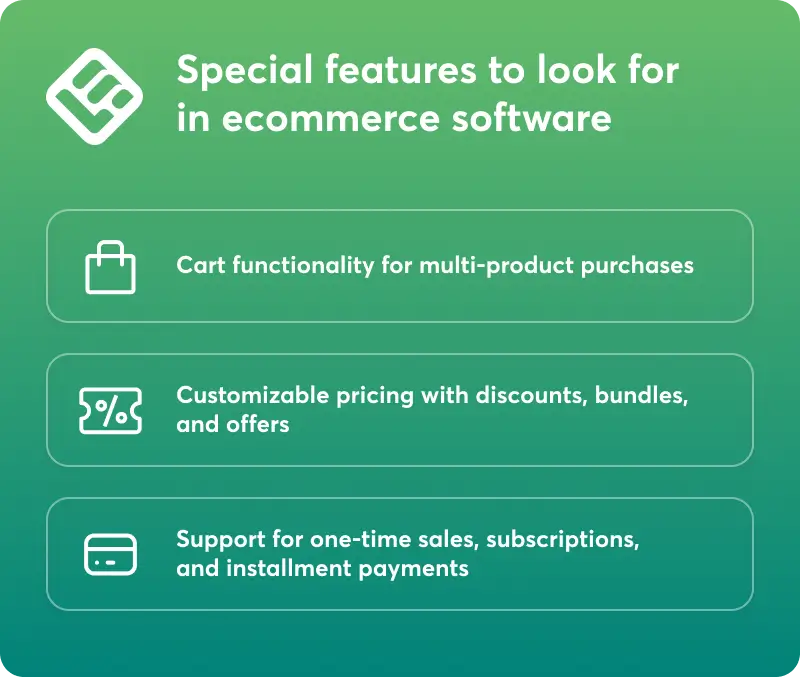
Strong shopping cart functionalities for multi-product purchases
A cart must be simple and clear to use. Specifically, you’ll want it to keep up with customers piling on items, changing quantities, seeing real-time stock updates, and getting a good view of the total costs or discounts. Saving carts for later? Super handy. Syncing carts across devices? Even better.
Customizable pricing with discounts, bundles, and offers
Everyone loves flexible pricing structures with discounts, bundles, and deals. These allow you to quickly catch people’s eyes and work as a great incentive to prompt people to buy (or buy more).
LearnWorlds is a customizable LMS made for course selling with flash sales and bundled courses.
Support for one-time sales, subscriptions, and installment payment processing
Your business model will change fast. So you need features for one-time purchases, subscription support, membership handling, and even installments.
Inventory management
As a nice-to-have and bonus feature, inventory management can help you keep your stock in check and set alerts for stock-outs to ensure you can fulfill all orders.
Compare the best ecommerce platforms for small businesses
Below you’ll find the list of the 11 best ecommerce platforms for small businesses you can choose from. The table shows you their best use cases, key ecommerce features, and G2 scoring.
1. LearnWorlds

LearnWorlds features are designed for all small businesses planning to sell online courses, digital goods, or training programs. You can use it to create killer landing pages and videos with interactive elements, plus handle most of your marketing efforts.
In minutes, you can build and design a branded academy, offer bundles or subscriptions with automations to course completion, and monitor student engagement and sales without any development skills.
See the LearnWorlds reviews on G2.
2. Shopify

Got physical products you want to sell fast? Shopify offers new business owners a lot more than just inventory, fulfillment, and dropshipping. The best part is you’ll also find a huge library of apps for anything from marketing to analytics, complete with ready-made templates and payment integrations.
3. WooCommerce

WooCommerce is a go-to open-source solution for WordPress sites. It comes with an extensive library of plugins for payments, shipping, and product management. Perfect for anyone already using WordPress without having to break the bank.
4. Wix

Wix has an ecommerce solution that’s easy to use and guarantees secure payments and smooth inventory tracking. It also has some basic SEO and marketing ecommerce tools, so you can quickly start an online shop that looks great and gets in front of the right people.
5. BigCommerce

BigCommerce gives you plenty of features for SEO to ensure multi-channel selling on Amazon, with Google Shopping, or via social media. There are no transaction fees, and the recent updates come with better product catalogs, scalable hosting, and advanced integrations that will match niche seller needs, too.
6. Squarespace

This website builder brings a stylish design to online selling with its focus on branding, art, or creative marketing. With Squarespace, you get stunning and configurable sites for products, physical or digital, as well as subscriptions and appointments.
7. Ecwid

Ecwid is one of the best ecommerce platforms for a small business. It was created to help small businesses “add ecommerce everywhere”. Starting from this vision, you can take their plug-and-play solution and place it on any existing website, blog, or even social media page. So you can now have an online store where your customers hang out and manage your products/marketing from one dashboard.
8. Shift4Shop

Inventory and customer management to SEO and marketing, this ecommerce platform comes with an extensive set of features, but it’s worth noting you can only use it if you sell from within the United States with Shift4Shop.
9. Sellfy

Sellfy is best for creators, digital sellers, and small businesses looking for a solution that will allow them to launch their online shop in minutes. You can create a store to sell downloads, subscriptions, or any physical goods, promote them via automated email marketing, and set up easy checkouts.
10. Square Online

Square Online is a great option for businesses using Square’s POS in-person (such as cafes, boutiques, or pop-up shops) who want to add ecommerce. The platform syncs your inventory, supports delivery/pickup, and works as an appointment or menu sales system.
11. Podia

Podia helps small business owners sell online courses, digital downloads, or memberships. The all-inclusive solution lets you host content, run webinars, manage your audience’s community, and accept payments.
💡Keep learning: 10 best ecommerce platforms for selling digital products online in 2025
How to overcome challenges in ecommerce for small businesses
A small business will inevitably find it challenging to meet the common hurdles that the ecommerce space comes with. First of all, you must recognize that selling anything online means you’ll need to stay flexible and pick software that won’t slow you down.
While certain problems might be solved at least partly through new platforms or tools, others require training or strategic partnerships, or a journey of the mind.
Wayne Lowry, Founder at Best DPC
Common challenges in ecommerce for small businesses include:
And we’re here for this.
LearnWorlds: The best ecommerce website builder for small businesses platforms
LearnWorlds is different. It’s your creative studio, one-stop command center, growth engine, and one of the best ecommerce website builders for small businesses.
With easy-to-use templates and a straightforward drag-and-drop editor, you can create individualized user flows so every visitor gets a unique experience with your digital storefront.
Interactive pop-up forms, multi-step forms, and multilingual localization are just a couple of the things that are possible with LearnWorlds. Build your website, handle SEO, create responsive widgets, and share content materials. Go ahead and start a free trial.

Alexandra Cote
Alexandra Cote is a SaaS growth marketer and online instructor who's worked with dozens of brands in the MarTech, HR tech, and productivity space. She's also a strong supporter of staying happy at work and choosing a healthy career path.
FAQ
Everything you have ever wondered, but were too afraid to ask...


